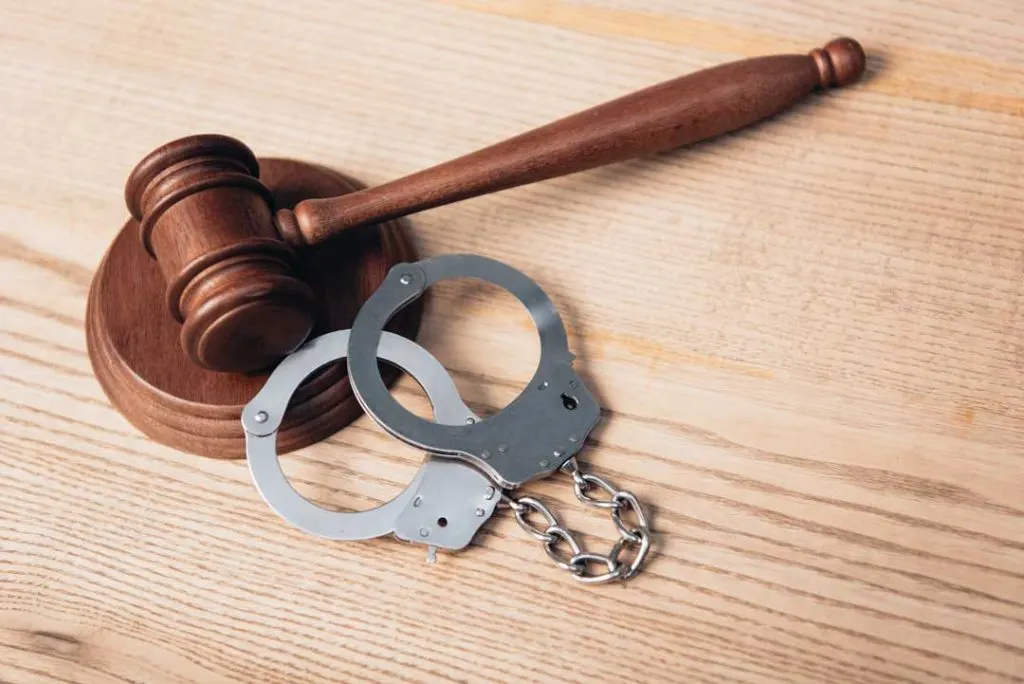Being facing criminal charges can feel overwhelming, but taking the right steps can make a huge difference in your case outcome.

Facing Criminal Charges? Here’s a Step-by-Step Guide to Protect Yourself
Facing criminal charges can be overwhelming, and it’s easy to feel lost in the chaos. Whether you’re dealing with a misdemeanor or a felony, it’s crucial to take specific actions to protect your rights and ensure the best possible outcome. Knowing what steps to take can help you stay focused and prepared.
Hire an Experienced Criminal Defense Lawyer
This is one of the most important decisions you’ll make in the process. An expert criminal defense lawyer will guide you through the legal system, help you understand your rights, and build a defense tailored to your case.
Make sure the lawyer you choose specializes in criminal law and has a track record of handling cases similar to yours.
Stay Calm and Don’t Panic
What you need to do when facing criminal charges is remain calm. Panic can cloud your judgment and make it harder to think clearly. Take a deep breath and assess the situation. Remember, you have legal rights that can help you through this.

While the situation is serious, staying composed will help you handle things more effectively.
Pause and Assess
Before reacting to any immediate pressure, take a moment to assess the situation. In the face of criminal charges, it’s easy to feel overwhelmed, but rushing into decisions without fully understanding the consequences can harm your case. Gather your thoughts, prioritize your actions, and focus on the next immediate step instead of getting lost in what-ifs.
Seek Emotional Support
Don’t try to go through this alone. Reach out to a trusted friend or family member who can offer support. Having someone to talk to can help you manage stress and prevent feelings of isolation, giving you a clearer mindset to deal with the legal process ahead.
Control Your Reactions
It’s essential to control your reactions, especially when interacting with law enforcement or anyone involved in the case. Avoid outbursts, emotional responses, or making any statements that could be misinterpreted. Staying composed and professional will help you maintain control over the situation and prevent further complications.
Focus on the Facts
Rather than getting lost in the emotional weight of the charges, focus on the facts of the case. Take note of what’s happening and make decisions based on logical reasoning, not fear or anxiety. This approach will help you maintain a clear perspective and make better decisions as you navigate the legal process.
Avoid Talking to Law Enforcement Without Your Lawyer

One of the most crucial things to remember is not to speak to law enforcement without your lawyer present. Anything you say can be used against you, and law enforcement officers are trained to gather information that could hurt your case. Politely exercise your right to remain silent until your lawyer is present.
Understand the Charges Against You
It’s essential to understand exactly what you’re being charged with.
Your lawyer can explain the charges in detail, but it’s also important for you to educate yourself on the severity and consequences of the crime. This knowledge will help you make informed decisions about your defense strategy.

- Know the specific criminal offense: Each criminal charge has specific elements that must be proven by the prosecution. Whether you’re facing theft, assault, or any other charge, it’s important to understand the legal definition and requirements for conviction.
- Understand potential penalties: Different charges carry different penalties, ranging from fines and probation to imprisonment or even the death penalty in extreme cases. The consequences of a conviction can affect your life for years, so knowing the maximum and minimum penalties you could face will help you decide whether to pursue a plea deal or go to trial.
- Consider any previous criminal history: If you have a criminal record, it could affect the charges you’re facing and the penalties. Past convictions might lead to enhanced penalties or influence how the judge handles your case.
- Assess available defenses: Once you understand the charges, you can start thinking about potential defenses. Some charges may have common defenses, such as self-defense in assault cases or lack of evidence in theft cases.
Review Your Rights and Legal Options
You have rights that protect you during criminal proceedings. These rights include the right to a fair trial, the right to remain silent, and the right to an attorney. Your lawyer will help you navigate these rights and explain your options, whether that involves negotiating a plea deal or taking your case to trial.
Gather Evidence and Documentation
To build a strong defense, it’s crucial to gather all relevant evidence and documentation. This could include witness statements, physical evidence, or any records that support your case. Your lawyer will guide you on what to collect, but it’s a good idea to begin this process as soon as possible to avoid losing critical information.
Collect Witness Statements
If there were any witnesses to the incident, get their contact information and ask them to provide written statements about what they saw.
Witnesses can play a significant role in corroborating your version of events and offering a different perspective that could work in your favor. The sooner you collect their testimonies, the fresher the details will be, which can make their statements more credible in court.
Obtain Relevant Documents
Gather any documents that might support your case, such as contracts, emails, medical records, or surveillance footage. These records can help verify your claims or disprove the charges against you.
For example, if you are facing assault charges and have medical documentation showing injuries from self-defense, it can provide a strong argument for your defense.
Preserve Physical Evidence
If there is physical evidence that could help your case, ensure it is preserved carefully. This could include items like damaged property, photos of injuries, or any other tangible evidence.
Handling these items properly is essential, as mishandling or destroying evidence can hurt your defense or even make the evidence inadmissible in court.
Prepare for Your Court Appearance

If your case goes to court, it’s important to prepare properly. Your lawyer will advise you on what to expect during the trial and how to conduct yourself in front of the judge. Dressing appropriately, being respectful, and following courtroom procedures will help you make a positive impression.
Consider the Long-Term Impact
Criminal charges can have lasting effects on your life, even after the case is over. A conviction can impact your career, relationships, and personal freedom. It’s important to consider the long-term consequences and work closely with your lawyer to pursue the best possible outcome for your future.
How to Handle Criminal Charges: A Step-by-Step Legal Guide
When you’re facing criminal charges, it’s crucial to act quickly and strategically. By staying calm, hiring an experienced lawyer, and understanding your rights, you can navigate the legal system with confidence. Remember, you don’t have to face this alone – your lawyer is there to help you through each step of the process.

Jessi is the creative mind behind The Coffee Mom, a popular blog that combines parenting advice, travel tips, and a love for all things Disney. As a trusted Disney influencer and passionate storyteller, Jessi’s authentic insights and relatable content resonate with readers worldwide.
